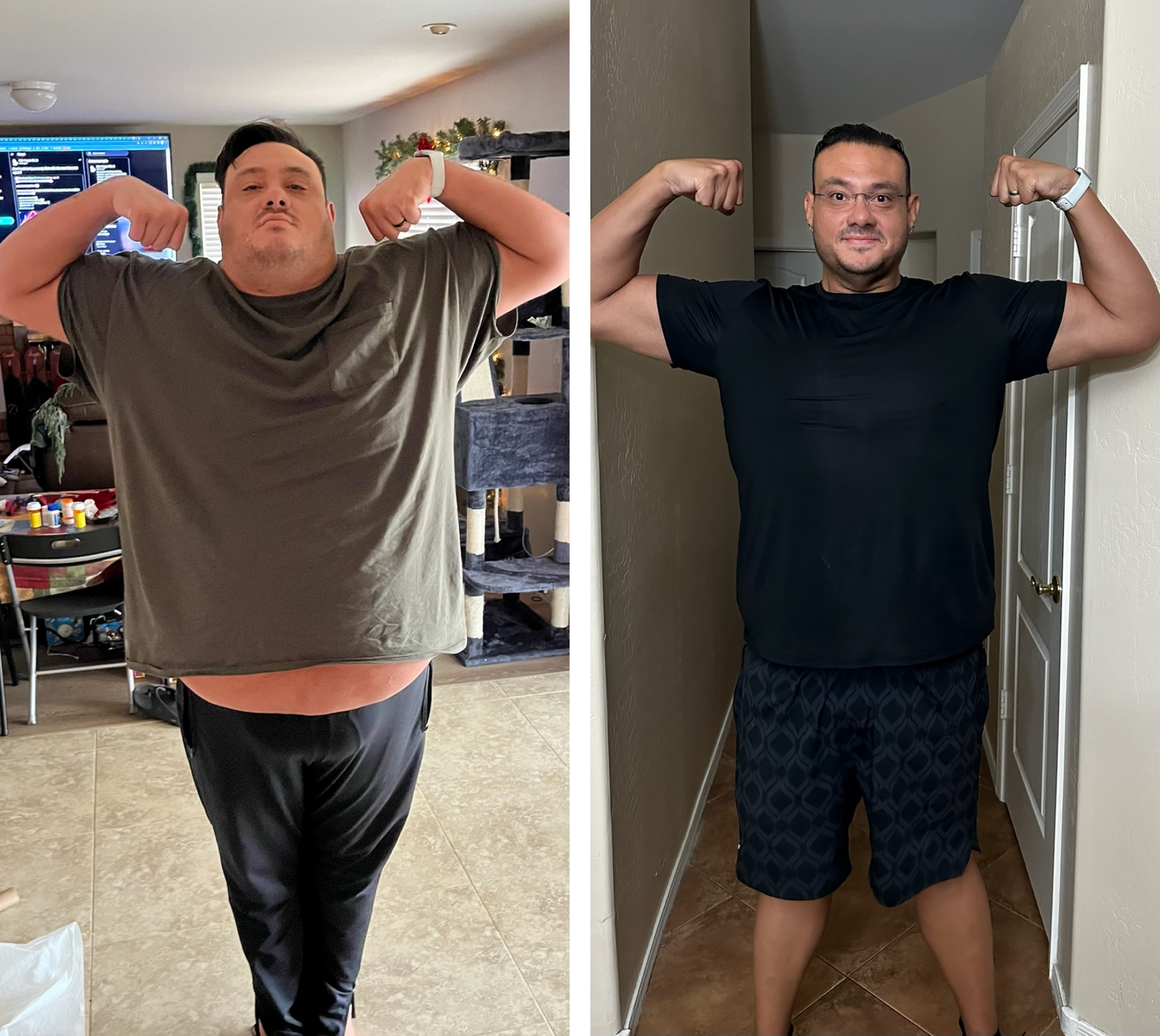When men think of low testosterone, the most common issues that come to mind are muscle weakness, daily fatigue, and low sex drive. Unfortunately, many men forget one important thing that usually accompanies a low sex drive caused by low testosterone: a low sperm count.
Studies have demonstrated a correlation between low sperm count and male infertility, making it a significant condition for men with low testosterone to consider when contemplating reproduction. Given this information, it is not uncommon for males suffering from low testosterone and related reproductive and sexual health issues, such as low sperm count and erectile dysfunction, to undergo hormone replacement therapy to elevate their testosterone levels and increase sperm production.
But although low testosterone may lead to a lower sperm count, does that mean it can actually affect a man’s ability to conceive? Or are there other reasons besides low testosterone that may cause a man’s sperm count to decrease? Before seeking testosterone replacement therapy as a means to increase sperm count, you may want to learn more about testosterone’s role in sperm production and its effect on male fertility in order to make an informed decision regarding your treatment options.
The Role of Hormones in Male Fertility
There are several hormones that play an important role in male fertility: gonadotropin-releasing hormone (GRH), luteinizing hormone (LH), follicle-stimulating hormone (FSH), and last but certainly not least, testosterone. Together, these hormones work in a somewhat tiered system to regulate male reproductive function and sperm production. If it helps you to visualize it, you can even think of these three hormones as office workers in a three-story building.
Gonadotropin-releasing hormone
The process that leads to reproductive function and fertility begins on the top floor when the hypothalamus creates the gonadotropin-releasing hormone, which stimulates the pituitary gland into secreting the follicle-stimulating hormone and luteinizing hormone.
Follicle-Stimulating Hormone (FSH)
Moving down to the next floor, the process continues with the follicle-stimulating hormone. Once the pituitary gland releases the follicle-stimulating hormone, the FSH will work to develop testicular growth and produce Sertoli cells, which assist in regulating the production and release of sperm cells.
Luteinizing hormone (LH)
As FSH handles sperm production, the luteinizing hormone works on the same floor to regulate the other side of male reproductive function. During this process, the luteinizing hormone will stimulate Leydig cells in the testicles to produce testosterone, which, in addition to managing other aspects of male physical health, also plays an important role in sperm production.
Testosterone
And finally, on the bottom floor, there is testosterone. After the Leydig cells produce testosterone in the testes, the testosterone hormone helps to initiate and maintain spermatogenesis, a cell differentiation process that helps to develop and produce fertilizing sperm. This process is equally as important as it provides men with the ability to have children.
Does Low Testosterone Cause Infertility?
Not necessarily. However, low testosterone can lead to other issues, such as low sex drive and erectile dysfunction, making it more difficult for men to engage in sexual activity and produce the sperm needed to conceive.
Feeling Run-Down?
Take the Low-T Quiz Today
Our men’s clinic can restore your physiology, change your body composition and optimize your health to slow down aging and prevent health complications caused by low testosterone.
Take back your life and become a better you today!
Does Low Testosterone Mean Low Sperm Count?
Not all the time. Although testosterone does affect sperm development, it has a small part to play in sperm production when compared to FSH and LH, which may be why some men suffering from low testosterone can still produce a normal amount of sperm. However, since testosterone still plays a role in sperm production, there are instances where low testosterone has been detected in men with low sperm counts. A 2020 study revealed that 15% of men with male-factor infertility and low sperm parameters also had low testosterone levels.
What Level of Testosterone Is Considered Low?
This will depend on your age. As men get older, their testosterone levels will naturally decline by 1% every year, and for some men, this slow decline can quickly change into a sharp decrease that is typically considered abnormal during the aging process. Men’s testosterone levels are measured in nanograms per deciliter (ng/dl), and usually, normal testosterone levels for men will range between 300 and 1000 ng/dl. However, once a man’s testosterone levels fall below 300 ng/dl, it is considered below the average range and, thus, diagnosed as low testosterone.

Boosting Fertility When Testosterone Levels Are Low
If you’re a man struggling with low testosterone but are still hoping to conceive, there are several things you can do at home to help boost your chances of fertility. Here are a few methods you can try:
Physical Activity
Despite being good for overall health, regular exercise has also been shown to help elevate testosterone, which can improve fertility. Several studies show that men who exercise regularly have higher testosterone levels and healthier sperm quality than men who lead sedentary lifestyles. Resistance exercises such as short bursts of heavy weight lifting have been shown to significantly increase testosterone levels, which can help you to increase your sperm count. But even though testosterone can help elevate your sperm production, it doesn’t mean you should excessively train to maintain a healthy sperm count. Research has also found that excessive exercise can cause too much stress on the body and reduce testosterone levels, which can once again lower sperm count and bring you right back to square one, so it may be safer for your sperm to exercise in moderation.
Balanced Diet
Eating a balanced diet rich in vitamins and minerals can also help boost fertility. Research shows that a healthy diet consisting of vegetables, fish, and whole grains can help to develop healthier sperm. Foods rich in zinc, such as oysters and beans, can also help boost and mobilize sperm in the testicles. Other foods that are packed with folic acids, such as leafy vegetables and fortified breakfast cereals, can also help with fertility and should be included in your diet.
Vitamin D
Vitamin D can have a significant impact on your testosterone, which, of course, can affect your sperm quality. You can receive Vitamin D naturally from briefly relaxing in the sun, as studies show that being out in the sun for 10-15 minutes during the middle of the day can help provide an ample amount of Vitamin D. Of course, if you happen to be sensitive to the sun’s UV rays and need to avoid prolonged exposure, you can always consume Vitamin D supplements as part of your daily regimen. In either case, consuming Vitamin D supplements or exposing yourself to the sun can be beneficial to your testosterone and, in turn, improve your sperm quality. A 2018 study found that Vitamin D influences hormone production and spermatogenesis, which in turn, helps to improve sperm health and motility.
How Does Testosterone Replacement Therapy Impact Fertility?
While testosterone replacement therapy can’t magically cure your infertility, it can help to reverse the side effects of low T that make sexual reproduction more difficult such as erectile dysfunction and low libido. In addition, testosterone replacement therapy also stimulates the release of human growth hormone (HGH), which can also help to increase sperm count. Studies show that HGH can promote the creation and maturation of sperm cells, improve sperm motility, and encourage the testes to produce higher volumes of seminal fluid.
However, although testosterone replacement therapy (TRT) can help men with low testosterone boost their testosterone levels and sperm count, it can also have an unfortunate side effect on the follicle-stimulating hormone (FSH), which plays an important role in sperm production. Using TRT to elevate your testosterone levels can lead to your body processing excessive amounts of testosterone that can reduce the production of the follicle-stimulating hormone and decrease the number of sperm cells the hormone produces. Excessive amounts of testosterone can also cause your testicles to shrink, which can also lead to a reduced sperm count and, eventually, infertility.
Can You Have Kids on TRT?
Since excessive amounts of testosterone through TRT can potentially decrease your sperm count, it may be more difficult for men to conceive while undergoing testosterone treatment. Luckily, this side effect isn’t permanent. Once you stop using TRT, the fertility of your sperm will usually return after a few months. If you’re suffering from low testosterone and hoping to have children while on TRT, it’s best to discuss your goals with your physician so they can recommend the best approach to treatment. Your physician will likely recommend that you stop your testosterone treatments and offer other possible solutions for your low testosterone so you can still work on raising your testosterone levels while trying to achieve conception during that time frame.
At Renew Vitality, we provide erectile dysfunction treatments and sexual health enhancements to help you address issues with male infertility. The amazing staff of medical professionals at our hormone replacement clinic can offer you knowledgeable recommendations that can help to enhance your sexual performance, elevate your sperm count and increase your chances of conception. Contact us at 1-866-995-2371 and schedule an appointment with one of our physicians at any of our hormone replacement clinics in the United States to learn more about our treatment options.
References:
- Low Testosterone and Semen Parameters in Male Partners of Infertile Couples Undergoing IVF with a Total Sperm Count Greater than 5 Million
- Physically Active Men Show Better Semen Parameters than Their Sedentary Counterparts
- Hypogonadism in Exercising Males: Dysfunction or Adaptive-Regulatory Adjustment?
- Association Between Vitamin D, Reproductive Hormones and Sperm Parameters in Infertile Male Subjects
/ - Growth hormone improves semen volume, sperm count and motility in men with idiopathic normogonadotropic infertility

























